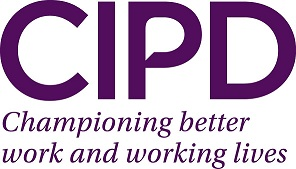Related Research Articles

Vocational education is education that prepares people to work as a technician or to take up employment in a skilled craft or trade as a tradesperson or artisan. Vocational Education can also be seen as that type of education given to an individual to prepare that individual to be gainfully employed or self employed with requisite skill. Vocational education is known by a variety of names, depending on the country concerned, including career and technical education, or acronyms such as TVET and TAFE.

A personal trainer is an individual who creates and delivers safe and effective exercise programs for apparently healthy individuals and groups, or those with medical clearance to exercise. They motivate clients by collaborating to set goals, providing meaningful feedback, and by being a reliable source for accountability. Trainers also conduct a variety of assessments beginning with a preparticipation health-screening and may also include assessments of posture and movement, flexibility, balance, core function, cardio-respiratory fitness, muscular fitness, body composition, and skill-related parameters to observe and gather relevant information needed to develop an effective exercise program and support client goal attainment. These assessments may be performed at the beginning of and after an exercise program to measure client progress toward improved physical fitness. Trainers create exercise programs following a progression model, using the baseline assessment as the starting point of a clients physical abilities and framing the program to fit the individual personally. They also provide education on many other aspects of wellness, including general health and nutrition guidelines. Helping clients to reach their full potential in various aspects of life requires a comprehensive client-centered approach along with a belief that clients are resourceful and capable of change.

Apprenticeship is a system for training a new generation of practitioners of a trade or profession with on-the-job training and often some accompanying study. Apprenticeships can also enable practitioners to gain a license to practice in a regulated occupation. Most of their training is done while working for an employer who helps the apprentices learn their trade or profession, in exchange for their continued labor for an agreed period after they have achieved measurable competencies.
Licensure means a restricted practice or a restriction on the use of an occupational title, requiring a license. A license created under a "practice act" requires a license before performing a certain activity, such as driving a car on public roads. A license created under a "title act" restricts the use of a given occupational title to licensees, but anyone can perform the activity itself under a less restricted title. For example, in Oregon, anyone can practice counseling, but only licensees can call themselves "Licensed Professional Counselors." Thus depending on the type of law, practicing without a license may carry civil or criminal penalties or may be perfectly legal. For some occupations and professions, licensing is often granted through a professional body or a licensing board composed of practitioners who oversee the applications for licenses. This often involves accredited training and examinations, but varies a great deal for different activities and in different countries.
An open shop is a place of employment at which one is not required to join or financially support a union as a condition of hiring or continued employment.
The National Skill Standards Board (NSSB) was a coalition of community, business, labor, education, and civil rights leaders. It was tasked with building a national voluntary system of skill standards, assessment, and certification to enhance the ability of the United States workforce to compete effectively in the global economy.
Community education, also known as community-based education or community learning & development, is an organization's programs to promote learning and social development work with individuals and groups in their communities using a range of formal and informal methods. A common defining feature is that programmes and activities are developed in dialogue with communities and participants. The purpose of community learning and development is to develop the capacity of individuals and groups of all ages through their actions, the capacity of communities, to improve their quality of life. Central to this is their ability to participate in democratic processes.
Environmental Health Officers are responsible for carrying out measures for protecting public health, including administering and enforcing legislation related to environmental health and providing support to minimize health and safety hazards. Environmental Health Officers keep our water, food, air, land, facilities and other environmental factors safe of health hazards, whether biological, chemical or physical. They also address the related factors that impact behaviours. Environmental Health Officers assess and control environmental factors that can potentially affect health, to prevent disease and create health-supportive environments. Environmental determinants of health play a major role in a community’s overall health and well-being, and thus Environmental Health Officers are essential in improving population health outcomes and reducing the burden of disease.
The Certified Safety Professional is a certification offered by the Board of Certified Safety Professionals. The accreditation is used in the United States by the National Commission for Certifying Agencies and internationally by the International Organization for Standardization/International Electrotechnical Commission and 193 Countries Consortium.
Green jobs are, according to the United Nations Environment Program, "work in agricultural, manufacturing, research and development (R&D), administrative, and service activities that contribute(s) substantially to preserving or restoring environmental quality. Specifically, but not exclusively, this includes jobs that help to protect ecosystems and biodiversity; reduce energy, materials, and water consumption through high efficiency strategies; de-carbonize the economy; and minimize or altogether avoid generation of all forms of waste and pollution." The environmental sector has the dual benefit of mitigating environmental challenges as well as helping economic growth.
ECO Canada is an online resource for environmental jobs, certification and training established in 1992 as part of Canada's sector council initiative. Sector councils are organizations that address human resource challenges facing the Canadian economy. With the support of private sector investors and the Government of Canada’s Department of Human Resources and Social Development, ECO Canada works to determine the skills and human resource needs of Canada’s environment industry.
Career Pathways is a workforce development strategy used in the United States to support workers’ transitions from education into and through the workforce. This strategy has been adopted at the federal, state and local levels in order to increase education, training and learning opportunities for America’s current and emerging workforce.
The Malaysian Qualifications Framework or the MQF is a unified system of post secondary qualifications offered on a national basis in Malaysia. It is administered by the Malaysian Qualifications Agency (MQA), a statutory body under the purview of the Ministry of Higher Education (MOHE).

The Chartered Institute of Personnel and Development (CIPD) is an association for human resource management professionals. Its headquarters are in Wimbledon, London, England. The organisation was founded in 1913 - it is the world's oldest association in its field and has over 160,000 members internationally working across private, public and voluntary sectors. Peter Cheese was announced in June 2012 as CIPD's new CEO from July 2012.

The Mining Industry Human Resources Council (MiHR) is a not-for-profit organization that drives collaboration among mining and exploration companies, organized labour, contractors, educational institutions, industry associations and Indigenous groups to identify opportunities and address the human resource and labour market challenges facing the Canadian minerals and metals sector. MiHR contributes to the sustainability of the Canadian mining sector by collaborating with its stakeholders and communities of interest, to develop solutions tailored to human resources needs in the mining sector. Its vision is to build a diverse, sustainable, safe and skilled Canadian Mining workforce that is recognized globally.

Occupational safety and health (OSH), also commonly referred to as occupational health and safety (OHS), occupational health, or occupational safety, is a multidisciplinary field concerned with the safety, health, and welfare of people at work. These terms also refer to the goals of this field, so their use in the sense of this article was originally an abbreviation of occupational safety and health program/department etc.
IIRSM provides practical education, training, advice, resources and networking to help people and organisations manage the challenges they face and appreciate the vital role risk management plays - from protecting profits and reputation, to more importantly lives.
Credentialism and educational inflation are any of a number of related processes involving increased demands for formal educational qualifications, and the devaluation of these qualifications. In Western society, China, and India, there has been increasing reliance on formal qualifications or certification for jobs. This process has, in turn, led to credential inflation, the process of inflation of the minimum credentials required for a given job and the simultaneous devaluation of the value of diplomas and degrees. These trends are also associated with grade inflation, a tendency to award progressively higher academic grades for work that would have received lower grades in the past.
TVET refers to all forms and levels of education and training which provide knowledge and skills related to occupations in various sectors of economic and social life through formal, non-formal and informal learning methods in both school-based and work-based learning contexts. To achieve its aims and purposes, TVET focuses on the learning and mastery of specialized techniques and the scientific principles underlying those techniques, as well as general knowledge, skills and values.
Commercial divers as defined in the Diving Regulations to the Occupational Health and Safety Act 85 of 1993 are required to be registered with the Department of Employment and Labour. The Department of Employment and Labour has jurisdiction only within the national borders of South Africa, and therefore registered diving schools are required to operate within the borders of South Africa where the Diving Regulations apply. A registered diving school is required to comply with the Code of Practice for Commercial Diver Training, and the training standards published by the department for divers, supervisors and instructors respectively.
References
- ↑ Environmental Labour Market Research.Labour Market Transition: A remedy for Labour Shortages in the Environment 2007 , Page 2.
- ↑ National Occupational Standards, Archived 2009-09-07 at the Wayback Machine .
- ↑ Human Resources and Social Development Canada. "What are National Occupational Standards?" Archived 2008-05-29 at the Wayback Machine .